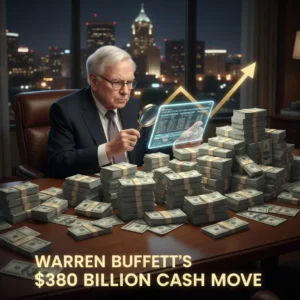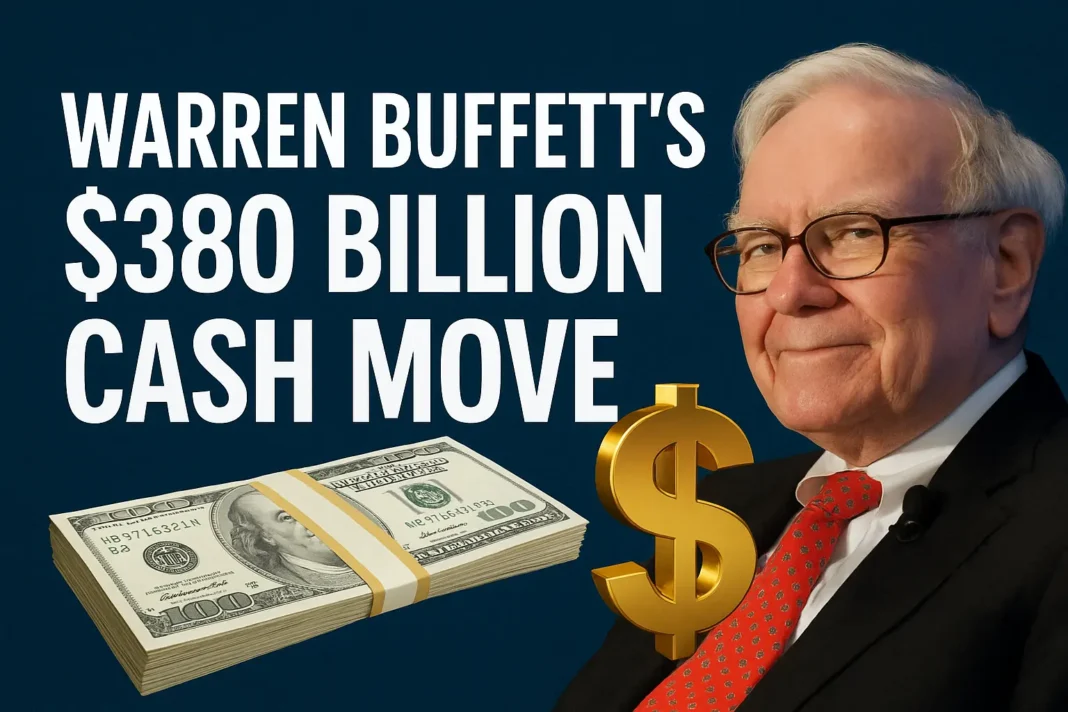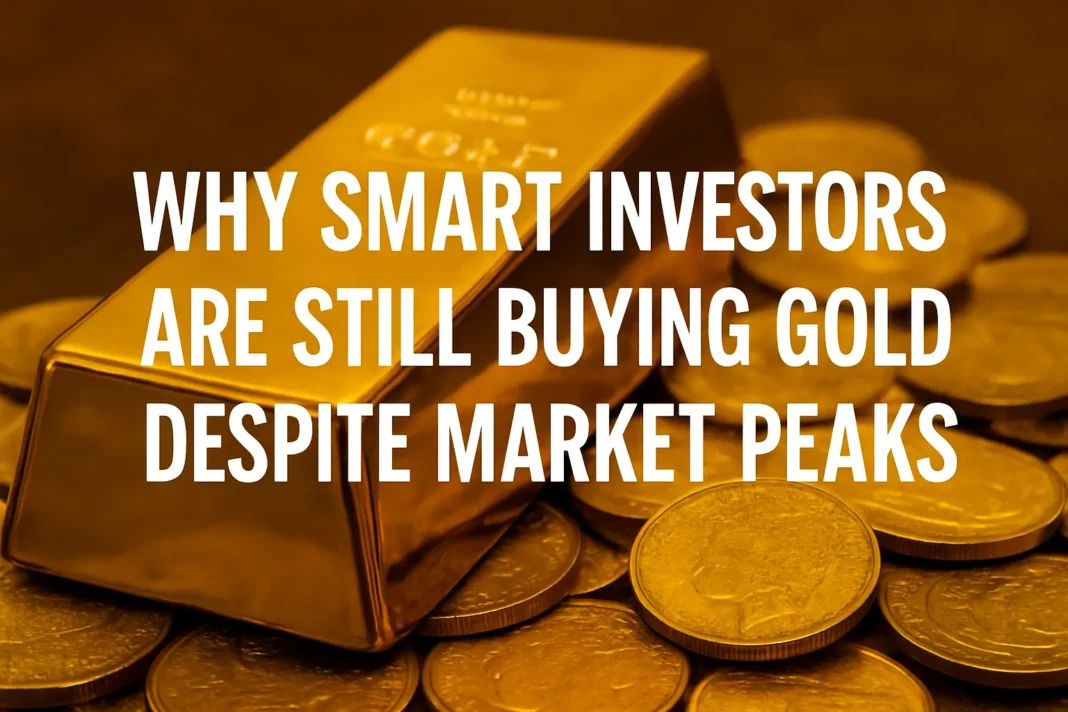Introduction

Ever feel like the world’s chasing the next “hot stock,” while you’re just hoping you’re doing it right? Sometimes, the smartest play isn’t about buying more—it’s about stepping back. And that’s exactly what Warren Buffett, the “Oracle of Omaha,” seems to be doing right now.
Buffett’s Latest Move: Selling More, Buying Less
Recent headlines reveal that Buffett’s Berkshire Hathaway has been selling more stocks than it’s buying. The result? A staggering $380 billion cash reserve—a record-breaking pile of liquidity. That’s more money than the GDP of some nations. So, what’s going on here?
It’s not panic—it’s preparation. Buffett isn’t retreating from the market out of fear; he’s getting ready. His massive cash build-up signals that he’s cautious about current valuations and waiting patiently for better opportunities ahead.
The Logic Behind Buffett’s Patience
Buffett has always played the long game. He buys when prices make sense, not when markets are hyped. His decision to hold more cash suggests that he sees today’s market as expensive—and possibly due for correction.
Think of it like this: Buffett’s move is the equivalent of sitting out a risky round of poker. He’s holding onto his chips, waiting for the next big hand that’s worth betting on.
Why Holding Cash Isn’t a Weak Move
A $380 billion cash reserve might sound extreme, but it gives Berkshire Hathaway something most companies—and investors—lack: flexibility.
That cash serves two powerful purposes:
-
Protection – It cushions Berkshire against unexpected downturns.
-
Opportunity – It positions Buffett to strike when the next undervalued gem appears.
This dual strategy is what separates smart investors from impulsive ones.
Lessons Regular Investors Can Learn from Buffett
1. Build Your Own Emergency Fund
You may not need $380 billion, but having a solid emergency fund (3–6 months of expenses) is essential. It’s your personal safety net when life—or the economy—throws you a curveball.
2. Don’t Chase Every Trend
Buffett doesn’t chase hype stocks or speculative fads. Neither should you. Focus on stable, value-driven investments. Sometimes, doing nothing is the wisest move—especially when markets are overheated.
3. Review, Don’t React
Buffett’s caution isn’t a cue to panic-sell your portfolio. Instead, take it as a reminder to review your holdings. Are you diversified? Are you overexposed to risky sectors? Is your portfolio aligned with your long-term goals?
4. Focus on Value, Not Hype
Markets can be noisy. Buffett reminds us that what matters is intrinsic value. If you own strong, profitable companies, short-term volatility shouldn’t shake your confidence.
Buffett’s Strategy: Patience Over Panic
Buffett’s cash-heavy approach isn’t about fear—it’s about foresight. He’s preparing for opportunities that others might miss. When markets stumble and fear rises, Buffett will be ready to buy quality assets at a discount.
For us, the takeaway is simple: preparation pays. In personal finance, as in investing, the ones who stay calm, build reserves, and wait for the right moment often come out ahead.
Conclusion
Warren Buffett’s $380 billion cash stockpile isn’t a mystery—it’s a message. In a world obsessed with constant motion, he’s proving that patience and preparation are forms of power. You don’t need billions to apply the same wisdom. Build your buffer, invest wisely, and remember: sometimes stepping back is the smartest move you can make.
FAQs
1. Why is Warren Buffett holding so much cash?
Because he sees few undervalued opportunities right now and wants flexibility to invest when markets correct.
2. Is Buffett predicting a recession?
Not necessarily. But his actions suggest caution and readiness for potential market shifts.
3. Should regular investors also hold more cash now?
Having an emergency fund and some liquidity is always smart, but your decision should depend on personal goals and market exposure.
4. Is Buffett still investing in stocks?
Yes, but selectively. He’s trimming overvalued positions and holding cash until better value emerges.
5. What’s the biggest takeaway from Buffett’s strategy?
Preparation and patience—don’t chase hype, preserve capital, and be ready for real opportunities.







